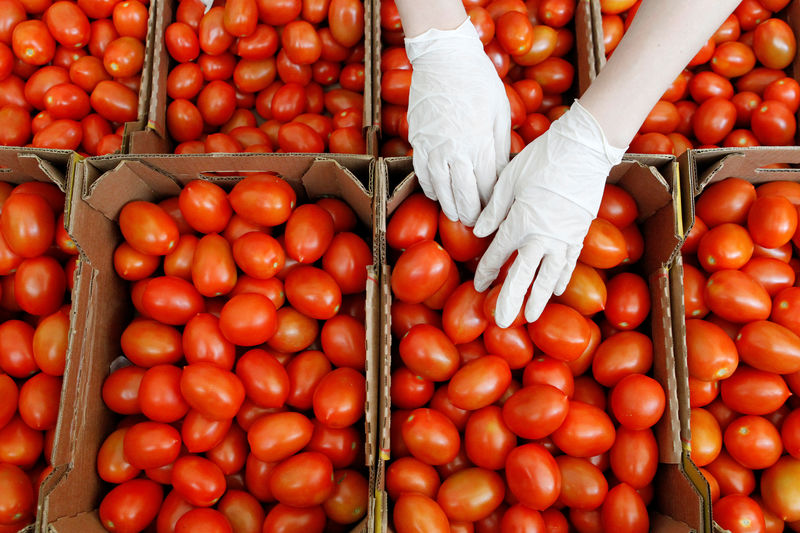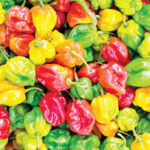On June 15, 1859, Lyman Carter, one of about 30 Americans living on San Juan Island, which at the time was a subject of a border dispute between the US and the UK discovered a large black pig digging out and eating the potato he had planted.
Enraged, he went back into his house, fetched his rifle, took position, took aim, and fired. The pig fell dead on its side but its departing soul awakened an incident that would infamously go down in history as The Pig War.
- Zamfara imposes curfew on Jangebe, shuts markets aiding bandits
- #EndSARS: Youths stole $2m, N17m from my palace – Oba Akiolu
The owner of the pig, Charles Griffin, happened to be an Irish man in the employ of a British company stationed on the island. The pig owner and the pig murderer had been on good terms before the incident. When the American realised who the pig owner was, he offered $10 in compensation. Griffin insisted on $100. The disagreement between the two escalated. The British authorities made to arrest the American. The Americans called for help and US warships stationed nearby moved in. The British also called in their warships and that, dear reader, was how a four-month-long standoff, otherwise known as The Pig War, between Britain and the United States, started.
Sometimes small incidents, such as an angry farmer shooting a rampaging pig eating up his potato, have ways of playing into deeper lying political tensions, triggering something far greater than the immediate protagonists intended.
The incident that triggered the riots in Shasha Market of Ibadan, which in turn triggered a food blockade of a part of the country, is one such incident. No pig, chicken or goat, to the best of my knowledge, was killed to start the riot. The first casualties of that conflict were some unfortunate tomatoes.
A porter carrying some tomatoes through the busy market had an accident and his load ended up on the floor of a woman’s shop. He tried to clean it up but the lack of water meant this task was always not going to be satisfactorily executed. A cobbler intervened on the side of the woman, slapped the porter, who reportedly retaliated (Some said he slapped the cobbler back, others said he stabbed him). In any case, the cobbler swivelled and collapsed. In a comedy skit, this would have been the laugh-out-loud moment, but this was real life, with real consequences. The cobbler, whose name was Sakirudeen Adeola, died later in hospital.
Because the cobbler was Yoruba and the porter was Hausa (or Hausa-speaking), that singular incident played into the wider tension that has evolved from the damaging reputation criminal herdsmen have generated, the “evict the Fulani” propaganda swirling in the South, the concomitant ethnic tensions and the indifference of the government. All of those things exploded that day in Shasha.
By the time the riots were quelled, 20 or 27 persons were reported killed, depending on which news source one subscribes to. At least 5,000 persons have been displaced. Even that Pig War did not record as many casualties.
But it would seem that tomato is not done with this quagmire yet. After the Amalgamated Union of Foodstuff and Cattle Dealers of Nigeria (AUFCDN)declared their intention to embark on a strike to demand compensation for the incident in Shasha and the loses its members suffered during the #EndSARS protests in October, not everyone was sure what that meant. To be honest, I haven’t, until this strike, heard of this union.
Yet, since Thursday last week, after the expiration of a one-week ultimatum to the government to address their concerns, the union members cut off the supply of cattle and farm produce to the Southern states. The consequence has been the scarcity of beef and fresh produce in the markets of the South and ironically, the abundance of these commodities in some parts of the North.
While people in Ibadan struggle to find tomato for their soup, farmers in Kano have tomato decaying on their farms. They would rather not waste resources harvesting them because they could not transport them to markets where there is a demand for them. The markets and streets of Kano are flooding with tomatoes, the glut is causing losses to the farmers.
Of course, all of this would not have happened if justice had been done or seen to be done the first time anyone kidnapped anyone, or the time someone decided to take laws into their hands to torch someone’s home or business because they were aggrieved. When a people attack a people because one person from one tribe did something to them, it is important to remember that that angst is a product of some resentment that the absence of social justice has allowed to fester.
Sometimes this group rage is not just about pigs, tomatoes, or other such trivialities, but about deeper underlying issues that must be addressed. The Pig War of 1859 was certainly not about a bloody large black pig as much as the Shasha incident and the subsequent blockade was not about tomato, onions and beef. It is, in essence, about different people doing what they can to get the kind of justice they expect for perceived grievances. If one listened carefully, what this impasse is screaming is: if you have the numbers to kill our kinsmen and burn their businesses, we have the power to make your life uncomfortable.
And where has all this unregulated exercise of power brought us to? To a plain of greater resentment for each other, a place of deeper hurt and scheming to get back at each other at the slightest opportunity, maybe the next time a Yoruba man spits in front of a Hausa trader in Kano, or if a Hausa water vendor fails to meet the demands of his Yoruba customer in Akure.
While protest is a legitimate tool of expression in any democratic society, such as ours ineptly pretends to be, it should be taken into consideration that throughout our history, we have been generally unskilled at managing such expressions. From the post-January ’66 coup protests (occasioned by gloating and mockery of certain people) to the protests that followed the July retaliation that same year, (this one occasioned by clubbing to death those who gloated six months before) to every “peaceful” protest that has followed, the most recent of which is the #EndSARS one.
And while injustice should not be tolerated, it is also prudent to examine how we choose to push back against them. This tomato war has dented the business of many traders in the South, but it has also bankrupted many farmers in the North. It is some kind of protest all right, but in the final analysis, it is some kind of Kamikaze activism.
“As long as you keep a person down, some part of you has to be down there to hold him down, so it means you cannot soar as you otherwise might,” opera singer, Marian Anderson once said.
Fortunately, the union has agreed, just yesterday, to call off the strike. That means the return of tomato sauce on the menus in the South with sumptuous chunks of beef in the stew. But for a while, this will come with a bitter after taste.
The frustration that drove the union to embark on this detrimental cause of action just to have a listening ear from the authorities is understandable. (Who wouldn’t understand when we are all victims of the social injustice that pervades the land). However, the best thing would be to have a society where we don’t need to set ourselves on fire just so those who should know would know that we are screaming over some legitimate grievance.
May beef, tomato and onions never disappear from our tables.

 Join Daily Trust WhatsApp Community For Quick Access To News and Happenings Around You.
Join Daily Trust WhatsApp Community For Quick Access To News and Happenings Around You.


